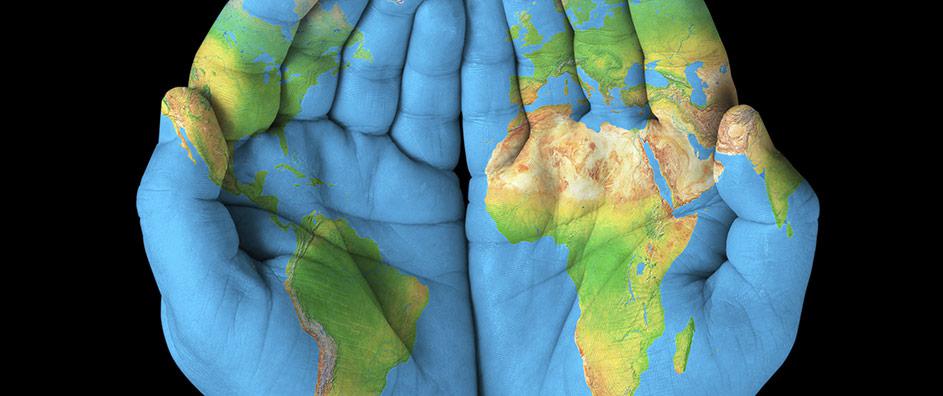The Baha’i Peace Plan is an innovative framework that seeks to address the deeply entrenched conflicts and discord that pervade human society. Rooted in the teachings of Baha’u’llah, the founder of the Baha’i Faith, this comprehensive approach advocates for a radical transformation in how humanity perceives peace. It presents an opportunity for individuals, communities, and nations to shift their perspective, fostering an environment where lasting harmony can prevail.
At its core, the Baha’i Peace Plan is not merely a set of principles, but a clarion call for collective action. The objective is to galvanize all members of society toward a shared vision, moving away from discord and division to unity and collaboration. This article delves into the fundamental tenets of the Baha’i Peace Plan, elucidating its implications and potential impact on contemporary society.
1. The Unity of Humanity
Central to the Baha’i teachings is the pivotal concept of the unity of humanity. The Baha’i Peace Plan emphasizes that all humans are inherently interconnected, transcending national, racial, and religious boundaries. This interconnectedness requires a reassessment of how we view one another, promoting a mindset that embraces diversity rather than viewing it as a source of conflict. The recognition that humanity is one family is essential for overcoming societal challenges.
This perspective compels individuals to engage in dialogue and cultivate relationships with those from differing backgrounds. Only through understanding can we hope to dismantle prejudices and foster goodwill, creating a society where varying viewpoints are valued.
2. The Role of Justice
Justice serves as a cornerstone of the Baha’i Peace Plan. The tenet posits that in order to achieve peace, justice must be prioritized in socio-political and economic systems. This requires a critical examination of existing frameworks, identifying inequities and advocating for restorative practices that address historical grievances. Baha’i teachings assert that true peace cannot be obtained while any group of people is marginalized or oppressed.
This call for justice is not limited to legal systems but encompasses the moral and ethical responsibilities of individuals. Each person has the potential to contribute to a just society, thereby shaping a more equitable world. The Baha’i Peace Plan urges citizens to advocate for policies that promote inclusion, ensuring that the voices of the voiceless are amplified.
3. Education as a Catalyst
The Baha’i Peace Plan posits education as a transformative force capable of engendering peace. Comprehensive education, especially for youth and women, is seen as imperative in cultivating a more informed and conscientious populace. The emphasis on moral and ethical education transcends conventional schooling, promoting the development of virtues such as compassion, empathy, and integrity.
A commitment to education fosters critical thinking and encourages individuals to question and challenge prevailing narratives. In doing so, it lays the groundwork for a society where peace is not merely an ideal but a tangible reality. Education cultivates a culture of peace, allowing people to negotiate differences constructively rather than resorting to conflict.
4. The Importance of Consultation
Another pivotal aspect of the Baha’i Peace Plan is the practice of consultation. Baha’i teachings advocate for a consultative approach in decision-making processes, which promotes collective wisdom and shared responsibility. This method entails open dialogue where all participants contribute their perspectives, fostering an environment of respect and understanding.
Consultation empowers individuals, giving them a stake in the outcomes of deliberations. By encouraging diverse opinions, this approach mitigates the likelihood of polarization and conflict, resulting in decisions that reflect the collective will of the community. The practice of consultation is instrumental in nurturing a culture where peace is deeply embedded in social interactions.
5. The Global Perspective
The Baha’i Peace Plan asserts that peace must be viewed through a global lens. The challenges faced today—such as climate change, economic disparity, and armed conflict—are inherently global in nature, necessitating international cooperation and dialogue. Baha’i teachings advocate for the establishment of a global governing body empowered to address these transnational issues effectively.
This perspective invites individuals to embrace their role as global citizens, urging them to transcend local or national loyalties in pursuit of collective well-being. Acts of service and solidarity that span borders not only contribute to peace but also foster a sense of belonging and responsibility toward an international community.
6. Spiritual Foundation of Peace
At the heart of the Baha’i Peace Plan lies a spiritual foundation. The teachings encourage individuals to develop their spiritual capacities, cultivating qualities such as love, kindness, and forgiveness. Such virtues are essential for establishing a peaceful society. By nurturing the spirit, individuals are better equipped to navigate the complexities of human relationships, engaging with others in constructive and meaningful ways.
This spiritual dimension transcends traditional religious practices, emphasizing the necessity of personal transformation as a precursor to societal change. Individuals who embody these spiritual principles catalyze peace in their communities, creating ripples of change that extend beyond cultural and geographic boundaries.
Conclusion
In an age marked by division and strife, the Baha’i Peace Plan offers a paradigm shift—a comprehensive and transformative approach rooted in the principles of unity, justice, education, consultation, global perspective, and spiritual growth. By embracing these teachings, individuals and communities can embark on a collective journey toward a more peaceful world. The challenge lies in translating these ideals into action, fostering an environment where peace is not merely envisioned but realized.
